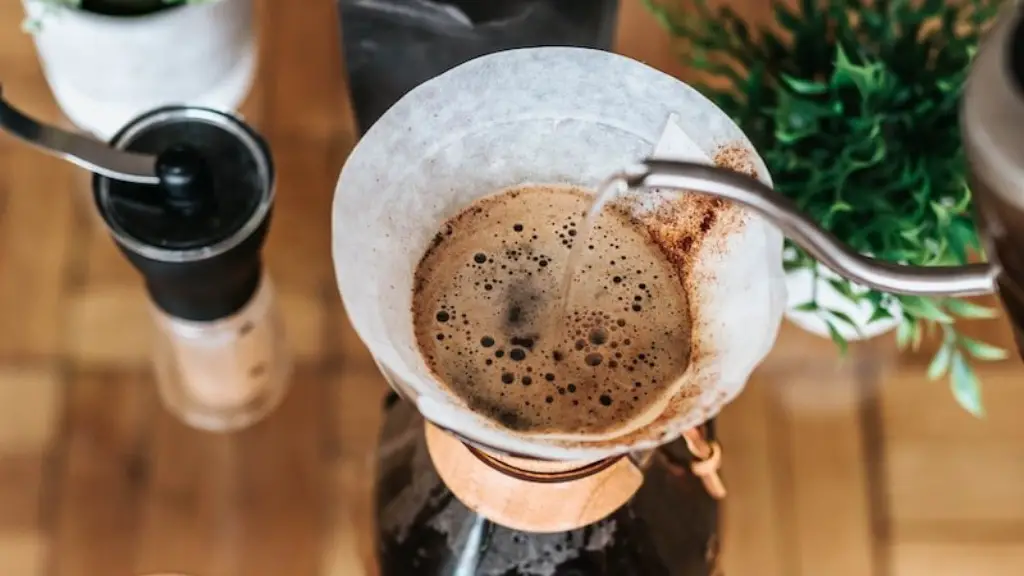Introduction
Gastric sleeve surgery (or sleeve gastrectomy) is a form of bariatric surgery. It is most widely used for weight loss in patients who are obese. But it can also come with unwelcome side-effects, such as nausea and indigestion. As drinking coffee is known to exacerbate these symptoms, sufferers of gastric sleeve surgery may be wondering when is it safe for them to cautiously resume drinking coffee. In this article, we answer that very question, offering a thorough assessment of the healthiness of coffee consumption following gastric sleeve surgery.
Side effects of gastric sleeve surgery
Gastric sleeve surgery is not without risk; the most common side-effects include nausea, indigestion, vomiting, and acid reflux. Patients are likely to experience these as a result of the reduction in stomach size, which prevents them from eating large quantities of food at one sitting. Additionally, the body may also react to the changes brought on by the surgery; these can include a slight inflammation of the stomach, and a decrease in the production of the “feel-good” hormone serotonin.
The effects of caffeine
Caffeine is a stimulant. When taken in large or frequent doses, it can trigger a number of adverse effects, such as dizziness, headaches, and nervousness. It can also lead to increased heart rate, sleeping problems, and dehydration. However, caffeine can also act as a natural appetite suppressant, which is why people often rely on coffee to help them manage hunger pangs and cravings.
Timeframe for drinking coffee
For gastric sleeve patients who want to reintroduce coffee into their diets, most experts agree that six weeks is an appropriate time to wait before doing so. This time allows the body to adjust to the new size of the stomach, and helps to reduce the risk of symptoms such as nausea and acid reflux. Some patients may decide that they want to wait longer for a greater period of healing and stabilization.
Healthier alternatives to coffee
Even once the patient starts to drink coffee, they will not be able to resume their pre-surgery consumption habits. Gastric sleeve patients must recall their original goals in seeking surgery, which was to lose weight and remain healthy. As such, they should also consider healthier alternatives to coffee, such as herbal teas and decaffeinated drinks.
How to consume coffee after gastric sleeve
When reintroducing coffee into their diet, it is important that gastric sleeve patients do so cautiously. They should start by having just one small cup per day, noting the effects it has on their body before gradually increasing their consumption. They should also avoid added sugar, syrups and creamers, as these can be severely damaging to the stomach and intestine.
The benefit of coffee consumption
Despite the issues related to caffeine consumption, it is wholly possible for gastric sleeve patients to drink coffee in a manner which is beneficial and healthy. When drunk in small amounts, coffee can be a great source of energy, aiding both physical and mental wellbeing. Additionally, drinking coffee can also reduce inflammation, prevent the onset of Type 2 diabetes and lower the risk of stroke.
The importance of listening to your body
The most important thing for gastric sleeve patients to do is listen to their bodies, and to look out for any adverse reactions that coffee may cause. If any negative symptoms appear, then coffee should be stopped immediately until the body has had time to adjust and heal.
Understanding coffee types and ingredients
It is also important that gastric sleeve patients know and understand the types and ingredients of the coffee they are drinking. Arabica is a type of coffee which is usually more mild and less acidic than other forms, making it a popular choice among gastric sleeve patients. Additionally, it is important to note that the amount of caffeine found in some coffees can be quite significant – with some types containing over four times the amount found in a regular cup of coffee. Again, gastric sleeve patients should look out for these and consult with a dietitian or a doctor if they are unsure.
Managing expectations
Gastric sleeve patients should also be aware that their bodies may never become accustomed to consuming large amounts of coffee. They should instead treat it as a fun indulgence, rather than a necessity, in order to ensure that their weight-loss goals can be reached and maintained.
Benefits of decaf coffee
Decaf coffee is also an option for gastric sleeve patients, as it is much lower in caffeine than regular coffee. This means that it is less likely to upset the stomach or cause other unwanted side-effects; however, it still retains many of the beneficial compounds that are found in regular coffee, such as antioxidants, vitamins and minerals.
Ideas for coffee substitutes
There are numerous substitutes for traditional coffee that gastric sleeve patients may decide to try, such as tea and organic herbal drinks. These are all low in caffeine and contain many beneficial compounds, such as polyphenols, flavonoids and antioxidants. Furthermore, certain herbal teas may even assist in digestion and reduce the symptoms of acid reflux.
Choosing whole foods over processed
Finally, it is important for gastric sleeve patients to avoid processed foods and drinks, such as energy drinks and artificial sweeteners. This is because these items can be highly damaging to the stomach, and can greatly increase the risk of adverse reactions. Instead, it is best to opt for natural, whole foods and beverages, such as fruits and vegetables, which can provide the body with essential nutrients, vitamins and minerals.
Conclusion
Gastric sleeve patients can drink coffee, providing they are cautious and diligent in doing so. It is important to give the body time to adjust to the changes made by the surgery before drinking, and to pay close attention to any adverse reactions that may be experienced. Furthermore, gastric sleeve patients should also consider healthier alternatives to coffee, such as herbal teas, and opt for whole foods rather than processed products. Doing so will ensure that the benefits of gastric sleeve surgery can be fully realized, and that the patient can enjoy healthier and happier life.



